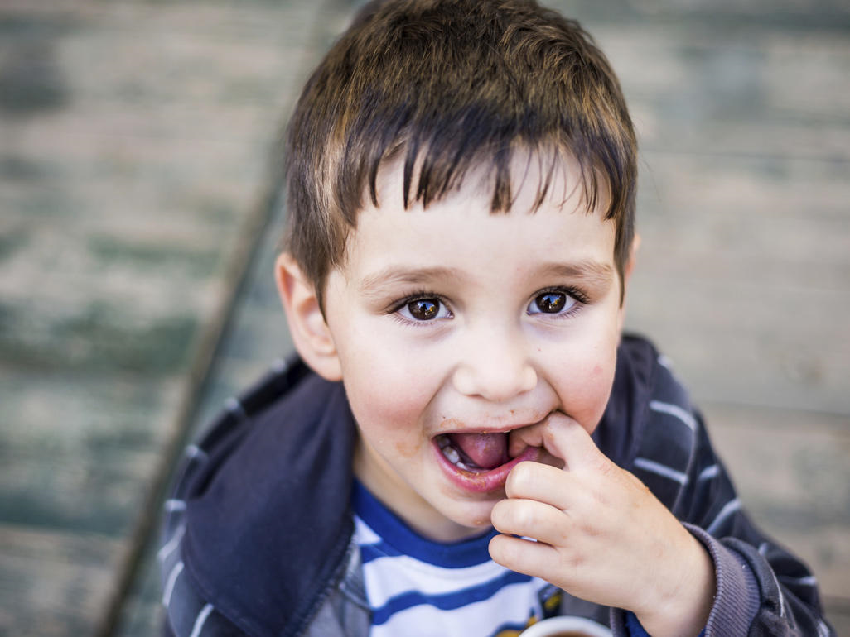
03 Oct How to prevent bite problems in children
Bite problems in children cause problems with their eating, speaking, and appearance. Fortunately, they can often be prevented.
Bite problems are common conditions in boys, but with some care, they can be prevented. By acting early, more complex disorders can be avoided in the future. In this article, we tell you how to prevent bite problems in children.
During the child’s growth, the structures of his mouth and face adapt to external conditions that influence his development. The way in which the little one breathes, swallows, or chews intervenes in the shape that the bone acquires or in the position of its teeth. Thus, when children have certain diseases in the mouth or some harmful habits, alterations in occlusion can develop.
Bite problems in children

Children’s bite problems are also known as malocclusions. These are defined as an inadequate alignment of the teeth or the incorrect fit of both arches when biting. According to the World Health Organization (WHO), dental malocclusions are the third most frequent oral pathology.
When the jaws do not develop properly and the teeth have an incorrect position, all the functions of the mouth are affected. The appearance of the smile, the way of eating, and the way of speaking suffer the consequences of alterations in the bite.
The most common malocclusions are the following:
- Crossbites.
- Open bites.
- Overbites.
- crowding.
- Dental malpositions.
- Diastemas.
Common Causes of Bite Problems
Bite problems often develop during childhood, when the structures of the mouth are growing. These are the main causes:
- Genetics: Sometimes the origin of bite problems is heredity and genetics. In these cases, several members of the family suffer from the same problem, so it is convenient to act with orthodontic treatments early.
- Bad oral habits: breathing through the mouth, thumb sucking, prolonged use of a pacifier or bottle, atypical swallowing and tongue thrusting are practices that predispose to malocclusions.
- Bruxism, cavities, and trauma: these external factors also cause problems when biting. Therefore, it is key to act to prevent them.
Recommendations to Prevent Bite Problems in Children
Some bite problems in children cannot be prevented, especially those related to hereditary and genetic factors. In any case, with some healthy actions from an early age, it is possible to reduce the risk of suffering from malocclusions. With some simple practices at home, you can promote the correct growth and positioning of the jaws and teeth.
Choosing to Breastfeed
At birth, the little ones have their lower jaw slightly retracted. When babies are fed through their mother’s breast, the oral muscles are stimulated and their jaw manages to move forward. Breastfeeding helps to achieve a good relationship between the lower and upper arches and promotes the correct development of the oral muscles. This, improves the child’s feeding and breathing.
This does not mean that if the baby is breastfed he will not need to wear appliances in the future. There are other factors that also influence the development of occlusion. However, the chances of establishing harmful oral habits are lower in breastfed children.
Encourage the Child to Chew
It is common that, when starting complementary feeding, many parents prefer classic baby food. But you should know that basing children’s diets on soft, crushed, and easy-to-swallow foods can affect the proper development of their oral structures.
Little ones need to work hard to chew. In this way, your jaws and orofacial muscles receive the necessary stimulus to grow and become stronger. If children get used to eating soft foods, it will be more difficult for them to learn this skill. To avoid these inconveniences, it is advisable to offer a wide variety of foods with different textures, sizes, and flavors. They must be incorporated progressively. It should start with the softest, then include the semi-solid and solid, to finish with the hardest.
Maintain Dental Health
Taking care of teeth and keeping them healthy is another way to prevent bite problems in children. This is achieved with proper oral hygiene from an early age and a healthy diet. Otherwise, children are at risk of tooth decay. This pathology can lead to them losing their teeth prematurely and the permanent elements having problems erupting and positioning themselves in the mouth. You should know those badly located permanent teeth alter occlusion, so if they are not treated in a timely manner, the problem is perpetuated until adulthood.
Remove the Pacifier in Time
The pacifier is a great ally when it comes to calming babies, as long as it is used correctly. The child sucks on the pacifier, but does not get any kind of food from it, which is called “non-nutritive sucking”. When this habit becomes very frequent, compulsive, or prolonged, it can affect the development of the structures of the mouth.
It is recommended not to prolong the use of the pacifier after the child’s 2 years, but some pediatricians advise starting its removal from 12 months. It is also important that when offering it to the baby, look for one that is of a suitable shape and size for his mouth.
Prevent the Child From Sucking His Thumb
Thumb sucking often relaxes and calms little ones when they are nervous, hungry, or tired. Although this behavior is quite normal and harmless in the first few months, it can be harmful if it continues beyond 2 years.
The finger on the teeth or the palate exerts pressure, which affects the development of the jaws and the positioning of the teeth and tongue. Eradicating this behavior can be difficult, so it will be necessary to have a lot of patience and, in some cases, professional help.
You may like to read 7 PHRASES TO AVOID DURING YOUR CHILD’S TANTRUM
